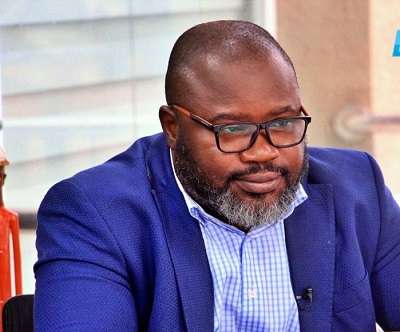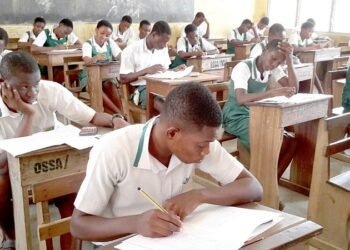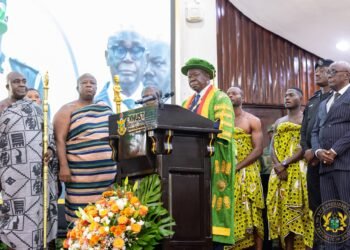Executive Director of the Africa Education Watch (Eduwatch), Kofi Asare, has lamented the declining proportion of national budgetary allocation to the education sector.
According to him, government must take steps to augment the deficit in the 2023 supplementary budget and revise the medium-term expenditure framework to reflect its international commitments on education financing, as well as the real needs of the sector.
“The declining proportion of the national budgetary allocation to the education sector has a strong potential to negatively affect the attainment of the Sustainable Development Goal 4 targets, especially at the basic education level.”
Kofi Asare
As part of a presentation of Eduwatch’s preliminary review of the education section of the national budget, Mr Asare stated that the review is informed by the key principles of allocative efficiency and Ghana’s international commitment to education and its financing.
He indicated that out of the projected government expenditure of GHC 205 billion, GHC 24.7 billion, representing 12% of the total budget, is allocated to the education sector. This, he revealed, represents an increase of 21% from the 2022 allocation of GHC 20.3 billion.
Mr Asare explained that this is not only “one of the lowest proportions of government budget allocation” to the education sector in about two decades, but also raises concerns about Ghana’s ability to meet the upper limit of the international education financing benchmark of 15% to 20% of public expenditure and 4% to 6% of GDP as part of UNESCO’s minimum threshold.
Capping of GETFund budget allocation
The Executive Director of Eduwatch indicated that out of the GHC 24.7 billion allocation to education, only GHC 1.8 billion is from the GETFund, against total GETFund levy accruals of GHC 4.6 billion. He noted that this suggests that only 39% of the GETFund levy proceeds has been allocated to GETFund for education financing.Owing to this, Mr Asare urged the committee to insist that the “2023 formula for distributing GETFund allocates 30% of the Fund’s infrastructure budget” to basic education before approving the formula.
“Eduwatch appreciates the advocacy of the Parliamentary Select Committee on Education towards uncapping GETFund and prioritizing basic education in the distribution of GETFund.”
Kofi Asare
Additionally, Mr Asare emphasized the need for the Minister of Finance to explain to Parliament why the 25% capping of the GETFund could possibly lead to an allocation of only 39% of accruals to the GETFund levy. He revealed that the continuous capping of GETFund is “inimical to education development”, especially at the basic level where the infrastructure gap continues to widen.
“There are 1.2 million children out of basic school in Ghana, mainly because of huge deficits in the availability of public basic schools in underserved communities. This, coupled with the over 5,000 basic schools taking place under trees, sheds and dilapidated structures, and the lack of Junior High Schools in about 4,000 primary schools must be enough reason for the government to listen to calls by Parliament and Civil Society for uncapping the GETFund.”
Kofi Asare
Commenting on the freezing of public sector recruitment in 2023, Mr Asare stated that the Ministry of Education must explain whether there are some exemptions for the education sector. He opined that it must equally announce stop-gap measures to augment existing and anticipated teacher deficits in rural schools in 2023.
READ ALSO: Hiring Freeze: Service Delivery Is Going To Be Compromised- GMA























